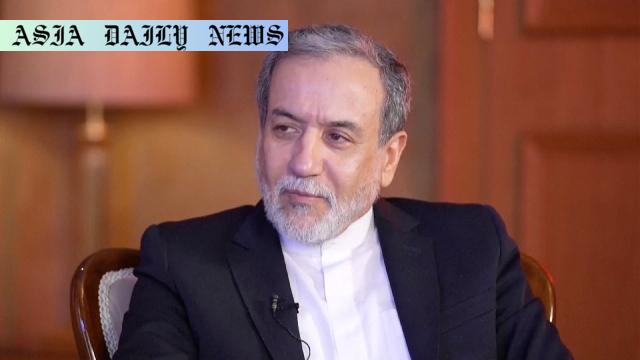Nuclear Deal: Iran responds to Trump’s letter, facilitating potential resumption of indirect talks on crucial diplomatic issues.

Background of the US-Iran Nuclear Agreement
The recent developments in US-Iran diplomatic engagements offer a glimmer of hope amidst a history of tensions. Iran’s response to a letter from US President Donald Trump signals the possibility of reviving indirect negotiations aimed at establishing a new nuclear agreement. This marks another chapter in the ongoing saga of international diplomacy. The groundwork for these discussions stems from the 2015 nuclear deal between Iran and world powers, including the United States.
However, in 2018, then-President Trump decided to unilaterally pull the United States out of the agreement, citing concerns about its effectiveness. This decision led to escalated tensions between the nations as Iran ramped up its uranium enrichment program. The Biden administration attempted to revive the deal through indirect talks, yet these discussions have faced numerous roadblocks, with both parties failing to find an agreeable solution.
Iran’s Response and the Path Forward
Recently, Iran’s foreign minister, Abbas Araghchi, confirmed that Tehran has responded to Trump’s letter, signaling a willingness to continue indirect negotiations. According to reports, Iran’s response was delivered via Oman, a neutral intermediary often involved in such high-stakes discussions. Despite facing ‘maximum pressure’ campaigns and military threats, Iran remains open to dialogue, a stance that could pave the way for renewed diplomatic efforts.
With conflicts continuing across the Middle East, primarily between US-backed Israel and Iran-supported armed groups, successful negotiations could ease regional tensions. An agreement may also open doors to improved US-Iran relations, potentially fostering increased political and economic stability across the region.
Challenges and Opportunities in the Middle East
Despite these promising developments, significant obstacles remain. Trust deficits, ongoing conflicts in the Middle East, and the complexities of international diplomacy pose challenges to reaching a consensus. Moreover, the specter of hardline political elements among both US and Iranian factions creates additional hurdles. Both nations must navigate these intricacies to find mutually beneficial pathways forward.
Yet, there exists a unique opportunity for both nations to reset their relationship and reaffirm their commitment to global nuclear disarmament. By engaging in constructive dialogue and addressing each other’s security concerns, a revived agreement could significantly lower the stakes in ongoing conflicts and reinforce international efforts toward peace.
Commentary
The Importance of Diplomatic Efforts
The reemergence of indirect negotiations between the United States and Iran offers a crucial opportunity for constructive engagement. Historically fraught with distrust and conflict, the relationship between the two nations has often been a source of broader geopolitical instability. A renewed commitment to diplomacy, particularly in the context of nuclear non-proliferation, signals a welcome shift toward dialogue and potential reconciliation. The international community must hope these talks bear tangible fruit, promoting peace and cooperation in the region.
Regional Implications of Successful Negotiations
Should the discussions yield a positive outcome, the Middle East could witness a significant reduction in tensions. Conflicts involving US-backed Israel and Iranian-supported armed groups could potentially de-escalate, fostering greater stability across the region. Moreover, a revised nuclear deal would serve as a blueprint for resolving other intractable conflicts through dialogue. The possibility of easing economic sanctions on Iran could also invigorate regional economies, creating a more interconnected and prosperous Middle East.
The Path Forward
While the road to a comprehensive agreement remains fraught with challenges, the willingness of both nations to engage in dialogue represents a step in the right direction. It is imperative for international actors, including neutral intermediaries like Oman, to continue facilitating communication and building trust between the parties. In doing so, the global community can demonstrate the power of diplomacy in resolving complex, high-stakes conflicts.


